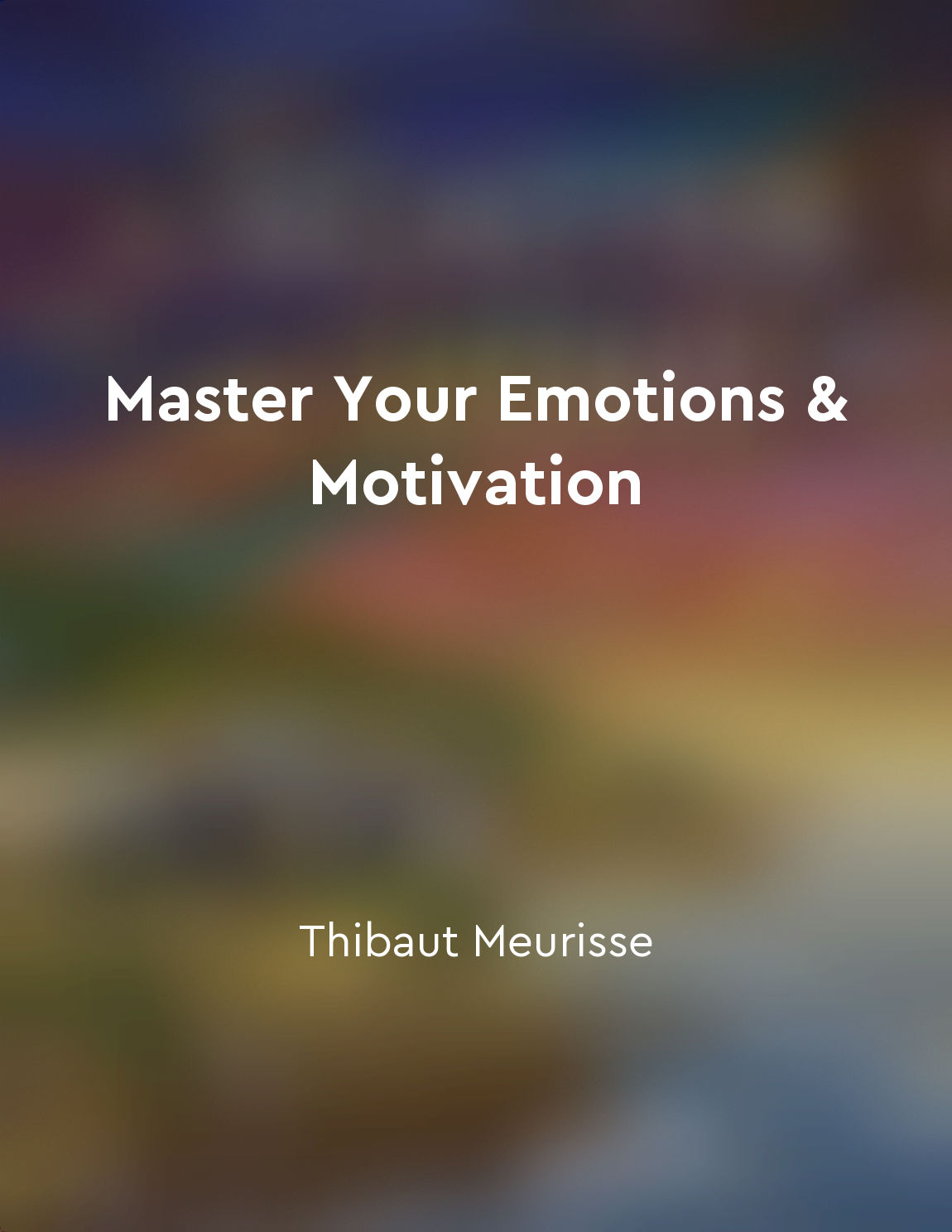Audio available in app
Recognizing avoidance behaviors can aid in managing anxiety from "summary" of Unwinding Anxiety by Judson Brewer
Recognizing avoidance behaviors can aid in managing anxiety. When we are faced with situations that trigger anxiety, it is common for us to try and avoid them in order to alleviate our discomfort. This avoidance can take many forms, such as procrastination, distraction, or simply walking away from the situation. While these behaviors may provide temporary relief, they actually serve to reinforce our anxiety in the long run. By learning to identify and acknowledge these avoidance behaviors, we can begin to break the cycle of anxiety. When we notice ourselves engaging in avoidance, we can pause and bring our attention to the feelings of anxiety that are driving us to avoid the situation. This allows us to investigate the root causes of our anxiety and develop a more constructive response. One effective strategy for managing anxiety is to practice mindfulness. Mindfulness involves paying attention to our thoughts, feelings, and bodily sensations in the present moment, without judgment. By cultivating this awareness, we can become more attuned to the triggers of our anxiety and the ways in which we habitually respond to them. When we approach our anxiety with mindfulness, we are better able to recognize when we are engaging in avoidance behaviors. Instead of automatically giving in to these impulses, we can choose to respond in a more intentional and adaptive way. This might involve facing our fears gradually, seeking support from others, or practicing self-compassion. Over time, as we become more adept at identifying and addressing our avoidance behaviors, we can begin to experience a greater sense of control over our anxiety. By breaking the cycle of avoidance, we create space for new patterns of thinking and behaving to emerge. This can lead to a gradual reduction in the intensity and frequency of our anxiety symptoms, as we learn to face our fears with courage and resilience.Similar Posts
Mindful organizations prioritize the holistic wellbeing of their employees
Mindful organizations understand that their employees are not just cogs in a machine, but human beings with complex lives and e...
Practice forgiveness and letting go
Forgiveness and letting go are essential components of wholehearted living. When we hold on to grudges, resentment, and anger, ...

Foster a sense of purpose and passion in your life
To experience lasting happiness, it is essential to cultivate a deep sense of purpose and passion in your life. When you have a...
Developing a support network can provide encouragement and guidance in managing anxiety
When facing anxiety, it is essential to have a support network in place. This network can consist of friends, family members, t...

Nurture meaningful relationships for support and connection
Building and nurturing meaningful relationships is essential for your emotional well-being and motivation. These relationships ...

Challenge societal norms and expectations
When you think about societal norms and expectations, what comes to mind? For many of us, it's the unwritten rules that govern ...
Set boundaries to protect your energy and time
When it comes to safeguarding your energy and time, setting boundaries is non-negotiable. By establishing clear limits on what ...
Melancholy is a complex and pervasive human experience
Melancholy, that brooding spirit which haunts the hearts of men, is a phenomenon as ancient as humanity itself. It is a complex...
They create a safe and supportive learning environment
Creating a safe and supportive learning environment is essential in the practice of mindful education. This environment allows ...

Learn how to communicate feelings effectively
Learning how to communicate your feelings effectively is an important skill to have. It means being able to express your emotio...
